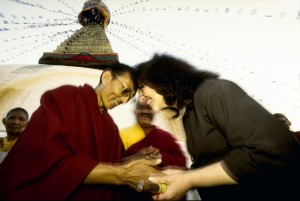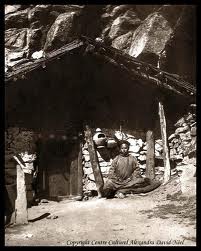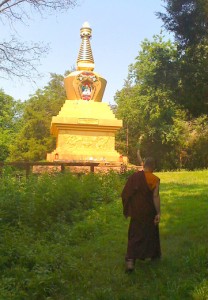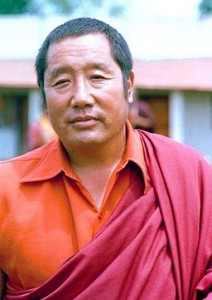The following is an excerpt from a teaching by Jetsunma Ahkon Lhamo called “The Foundation of Bodhicitta”
Our next understanding must be what actually would be the end of suffering. What would the end of suffering look like?. Let’s say I was going to engage in enlightened activity. Let’s say that I could do that, had that potential. If I were going to alleviate the suffering of sentient beings, what would that look like? What form would that take?. In order to understand that, you really have to understand what escape from suffering is. In order to understand what escape from suffering is, you must understand what suffering is. What is this suffering?.
Now everybody has an idea of what suffering is. I don’t think I have to define suffering according to Webster’s dictionary. Each of us have had times in our lives when we have suffered. We have had loved ones leave us; relationships that we have loved have ended; even relationships that we don’t love have ended and brought us suffering. We have had changes in our lives that are very difficult: We have lost money; we have lost jobs; we have gained things and then have lost them. Things that we have loved have disappeared. All of these have been sufferings and if none of those things have happened to us, perhaps we might have had difficulties with our children. If none of those things have happened to us, still we will get sick. If we haven’t gotten sick yet, then definitely we will get old and we will die. These are the sufferings of cyclic existence. No one escapes cyclic existence without suffering. So it is considered that cyclic existence is pervaded with suffering. It is pervaded with suffering. It is not to say that there won’t be any happiness in cyclic existence, but the state of that happiness will be temporary because suffering is all pervasive,. and because everything is constantly changing.. So if you experience happiness, that happiness will end because all things end. Everything is impermanent. If you experience the happiness of giving birth to a beloved child, that happiness will be temporary in that eventually that child will grow up. Eventually no matter how much you love that child, there will be difficulty with that child; and eventually either you or the child, eventually both, will die and so that relationship must end.
If you win the lottery, the happiness from that is also impermanent. As you know, money can be spent; money can be squandered. And also for many people, money doesn’t bring happiness at all. I’d like to have a shot at it though,. anyway, just to see. I feel like you should test the Buddha’s teachings before you firmly commit. At any rate, you get my drift. If you buy a hot new car, and you think, “Oh good, I feel good now,” buzzing around in your nice new car, pretty soon that car is going to break down, and that car is going to feel like an old wife. Pretty soon it will have a clutch that needs repairing; and then you have to buy new tires and the steering isn’t so smooth. You know what happens. Everything changes. Cyclic existence is pervaded with suffering.
That is what you know about cyclic existence. I don’t have to tell you that; I don’t have to prove that to you. If you haven’t seen that for yourself by now, then I don’t know what to say to you. I feel that you must snap your fingers three times and maybe click your heels together and say, “There is no place like home.” I think that you should wake up to the fact that this is not Kansas, and just kind of get with the picture and look at your life. If you don’t know that suffering exists, you had better check it out.
Copyright © Jetsunma Ahkon Norbu Lhamo All rights reserved









